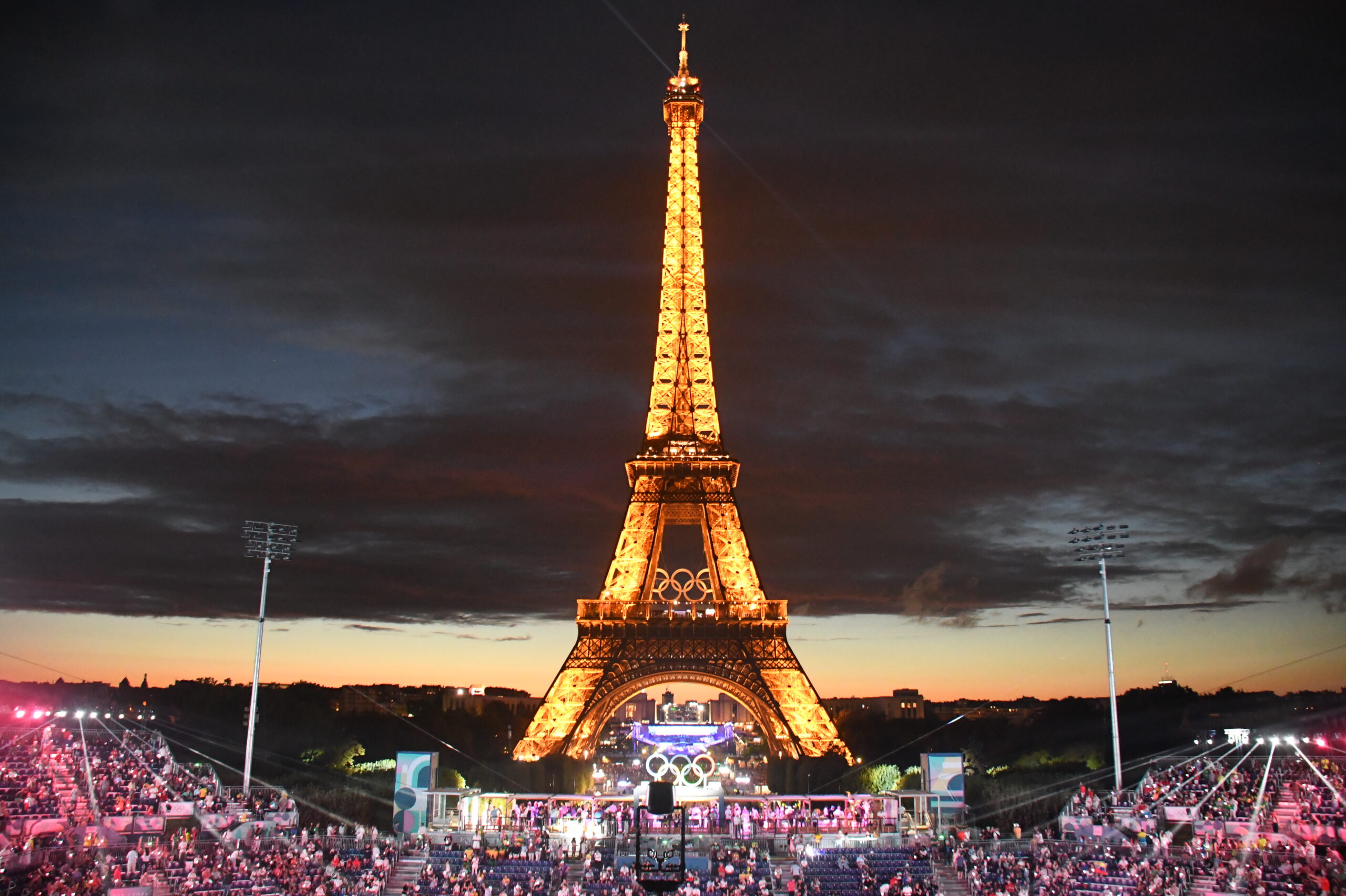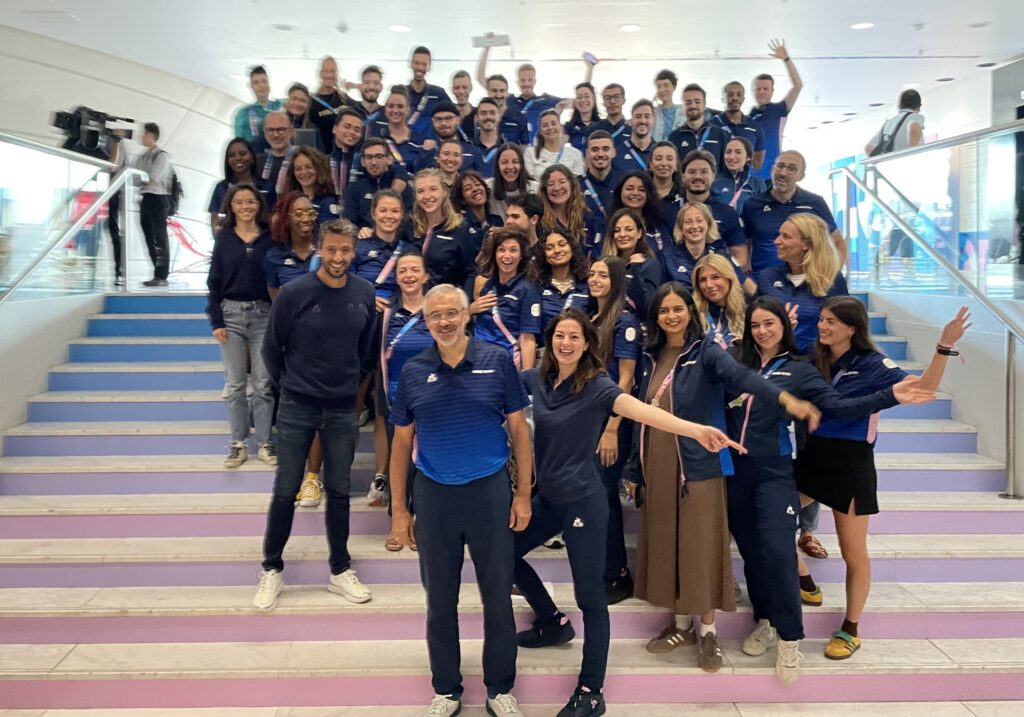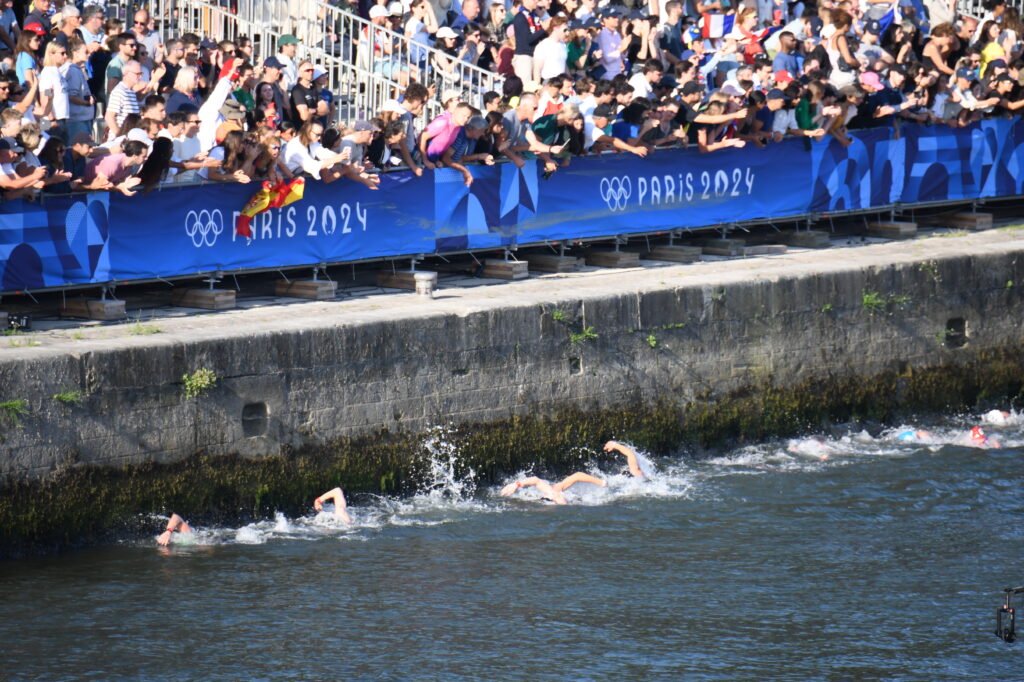
PARIS — From the outset, Paris 2024’s plans for the Olympic Summer Games was ambitious. It began with a deconstructed Opening Ceremony along the Seine and it is ending with other firsts, including a public marathon on the official Olympic course near the end.
In between, organizing committee leaders have been pleased with how things have unfolded. At a press conference to dive into what worked and what hasn’t, the general consensus was the Games were not only a boost for Paris but for the Olympic movement.
“For the last 17 days it’s been a magical feeling,” said Paris 2024 President Tony Estanguet. “Time was suspended sometimes in different venues.”
Organizers have plenty to be pleased with by several metrics, including:
Sponsored Content
- Another estimated 1 million spectators attended for cycling events held on city streets
- The first mass participation event during an Olympics with 40,000 runners from 127 countries in the public marathon
- Record attendance at women’s events, including 56,000 for rugby and 26,500 for handball
- A record medal haul for the host country France
A Focus on Engagement
Estanguet also gave credit to 45,000 volunteers and another 4,000 staff members who helped execute the organizing committee’s ambitious goals. Looking back, Estanguet said an early decision to focus on engagement with the people of France as a priority paid off.

“We decided to add a director on our team in charge of engagement because we knew at that time that success at end of the Games would be our ability to engage widely with people and give them a great experience,” he said. “At each step of the process we found ways to engage people in the delivery. Usually, you concentrate a lot on the operations, but we decided to focus first on engagement and legacy. Of course, the last four years we had to focus more on operations.”
Those operations were not without their challenges. COVID, war in parts of the world, inflation, social unrest all played outside roles in the planning. Estanguet also described some of his anxiety around the Opening Ceremony, which while memorable, did not go how the organizing committee drew it up. All their renderings of a beautiful sunset for the boats along the Seine to move toward turned instead a reality of massive rain — a month’s worth in one night of unfortunate timing.
“The forecast was a major source of concern and stress,” he said.
Adjusting for Torrential Rain
Part of that stress was, of course, the unknown of what the weather would do and how the performance would need to be adjusted after years of planning.
“We imagined (rain) could happen but not that way, so we made some adjustments to make sure the Opening Ceremony could still go through,” he said. “I was stressed through the end of the ceremony because I didn’t know if the artists would be able to adapt to those crazy conditions. But they did.”
Added Etienne Thobois, the chief executive officer of the organizing committee: “We showed we were able to adapt constantly.” That included changes in the schedule for triathlon, sailing, surfing and other events that were affected by weather or other conditions.
“We had a lot of contingency plans in place so that it could go well,” he said. “Everything went smooth for the public even though we as the organizing committee were very tense and under pressure.”
Paralympics Up Next
While execution of the Olympic Games is nearing its end, the Paralympics are up next, something not lost on the host committee. Many of the venues will be repurposed, including the dramatic Eiffel Tower stadium, which will host blind soccer.
“It’s not because we managed to pull off the Olympic Games that we can pull off the Paralympic Games,” he said. “The Paralympic Games will be a success if we’re able to get all our ducks in a row, if we concentrate on everything.”
The Paralympic Games will take place August 28 – September 8.
Sticking to the Plan
Estanguet said leaders in Los Angeles (2028) and Brisbane (2034) have been on site observing how Paris pulled off its efforts. He said now his team’s effort is near the end, there are no regrets by the approach they chose to take.

“We made strong choices and we stuck to this ambition the last seven years,” he said. “Bold choices are not always the easiest ones. To stage an Opening Ceremony on the River Seine, the swim in the River Seine, we had to face challenges, but we did it. This is what Paris 2024 is all about: We wanted to showcase the most beautiful venues we have. I think we have really delivered on our ambitious decisions.”












 Copyright © 2025 by Northstar Travel Media LLC. All Rights Reserved. 301 Route 17 N, Suite 1150, Rutherford, NJ 07070 USA | Telephone: (201) 902-2000
Copyright © 2025 by Northstar Travel Media LLC. All Rights Reserved. 301 Route 17 N, Suite 1150, Rutherford, NJ 07070 USA | Telephone: (201) 902-2000